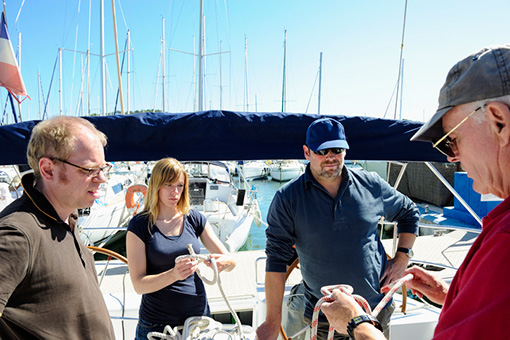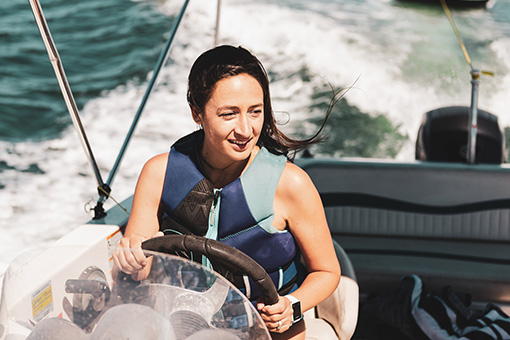Do you love spending time on the water? Whether you're a boater, fisherman, or just enjoying a day out on the water, staying safe is important. Even if you are an experienced boater, it's crucial to stay up-to-date on the latest safety information. One of the best ways to do that is to take a boating safety course. This blog post will discuss the top reasons you should take a boating safety course.
1. Learn How to Operate Your Boat Safely and Avoid Potential Accidents
A boating safety course will teach you the basic skills you need to operate a vessel safely. You will learn about the different types of boats, their capabilities, and how to choose the right boat for your needs. You will also learn about the different types of engines and how to maintain them.
In this course, you will not only learn about the various navigation tools available to boaters but also how to use them properly to stay safe on the water. You will also learn about different safety equipment and how to use them to avoid accidents.
2. Learn About Navigating in Inclement Weather Conditions
Before heading out onto the open water, it's crucial to understand how to read weather conditions, as sudden changes can quickly lead to dangerous situations. Wind direction, air pressure, and precipitation can all give clues about what kind of weather is on the way.
In a boating safety class, you will learn about the different weather conditions and how they can affect boaters. Learning techniques for staying safe in any condition, including fog, heavy winds, and severe storms is essential to your safety on the water. And the ability to read and interpret such weather forecasts is also a crucial element of boating safety. With this knowledge, you can be sure that you and your vessel are prepared for whatever Mother Nature throws your way.
3. Learn About Boating in Different Bodies of Water
Different bodies of water present different challenges to boaters. Lakes, for example, are often much shallower than oceans, meaning there is a greater risk of grounding. Rivers, on the other hand, can be very narrow and winding, making it important to know how to maneuver in tight spaces.
Taking a boating safety course will teach you how to boat safely in different types of bodies of water. You'll learn about the unique hazards that each type of water presents and how to avoid them. In addition, you'll also learn about the different regulations that apply to different kinds of bodies of water.
4. Learn How to Respond to Emergencies
Boating can be a great way to enjoy the outdoors and spend time with family and friends. However, it is also crucial to be aware of the potential dangers. Every year, there are reports of boaters who are injured or even killed in accidents. Unfortunately, 658 people died, and 2,641 were injured in boating accidents in 2021 alone.
Taking a boating safety course can help you avoid these risks by teaching you how to handle the boat safely and what to do in an emergency.
For example, your crew will learn how to check the weather conditions before heading out onto the water, properly maintain the boat, and what to do if someone falls overboard. In addition, you will also learn CPR and first aid so that you can offer assistance in case of an accident.
Other Reasons to Take a Boating Safety Course
Taking a boating safety course is a great way to become familiar with the rules and regulations of safe boating. In many states, boating safety courses are required to obtain a boating license. Taking a boating safety course demonstrates your commitment to safety on the water. Plus, it can save you money on your insurance premiums.
Even experienced boaters can benefit from a boating safety course, as it is a great way to refresh your knowledge. No matter your experience level, taking a boating safety course is always a good idea.
Where to Find Boating Safety Courses
If you're interested in boating safety education, there are several boating courses to consider.
Many community centers and state parks offer free or low-cost boating safety courses to help you learn the basic skills needed for safe boating.
Additionally, many online resources provide information about various boating safety courses, including specific requirements and locations. You may even be able to earn a safety certificate through an online course.
For example, you can visit sites like the National Safe Boating Council or Boat Ed to learn how and where to find a boating safety course near you.
Final Thoughts
Whatever your experience level or interest in boating, taking a boating safety course is an essential step toward keeping yourself and others safe on the water. By learning about the various safety measures, you can ensure that your boating trips will be fun and carefree.
So, why wait? Sign up for a boating safety course today and start enjoying the water safely!


